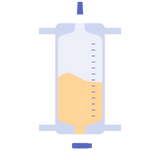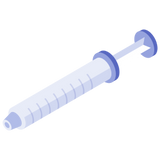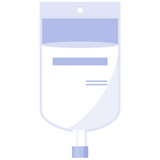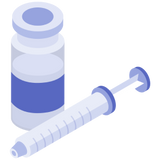
Preventive Health: What Is It and Why Is It Important?
Posted by Pankaj Dhiman on Feb 23rd 2024
Investing in your health doesn't just mean reacting to illness, it's about taking proactive steps to prevent it. Preventive health, also known as preventive care, is a crucial aspect of maintaining overall well-being and living a longer, healthier life. This blog delves into the core of preventive health, exploring its various facets, its importance, and how it empowers individuals to take charge of their health journey.
Must Read: How to Properly Use Wound Care Dressings: A Guide to Optimal Healing
What Exactly Is Preventive Health?
Preventive health encompasses a range of proactive measures aimed at identifying and addressing potential health risks before they develop into full-blown illnesses. It involves various strategies, including:
- Regular checkups and screenings: These visits allow healthcare professionals to detect potential health concerns early on, when they are often easier to manage and treat.
- Vaccinations: These immunizations protect individuals from infectious diseases, preventing serious complications and safeguarding public health.
- Healthy lifestyle choices: Maintaining a balanced diet, engaging in regular physical activity, managing stress effectively, and getting adequate sleep all contribute significantly to preventive health.
- Genetic testing: In certain cases, genetic testing can identify individuals at higher risk for specific inherited diseases, allowing for early intervention and proactive management.
Must Read: 10 Nursing Trends to Watch in the US in 2024
What Types of Tests, Screenings, and Services Are Part of Preventive Care for Adults?
The specific preventive care recommendations for adults vary depending on factors like age, gender, family history, and overall health status. However, some common preventive services for adults include:
- Blood pressure checks: Regularly monitoring blood pressure helps identify and manage hypertension, a major risk factor for heart disease and stroke.
- Cholesterol screenings: These screenings assess cholesterol levels, enabling early detection and management of high cholesterol, another significant risk factor for cardiovascular disease.
- Blood sugar tests: Identifying and managing diabetes, a chronic condition affecting blood sugar levels, is crucial to prevent associated complications.
- Cancer screenings: Regular screenings for specific types of cancer, such as breast, cervical, and colon cancer, can lead to earlier detection and improve treatment outcomes.
- Dental checkups and cleanings: Maintaining good oral hygiene and undergoing regular dental checkups helps prevent dental problems and promotes overall health.
Must Read: Laser Revolution in ENT Surgeries: Precision, Benefits & Advancements
What's Considered Preventive Care for Children?
Preventive care for children plays a vital role in ensuring healthy growth and development. It typically includes:
- Regular well-child visits: These visits allow pediatricians to monitor growth milestones, assess development, administer vaccinations, and address any health concerns.
- Vaccinations: Following the recommended childhood immunization schedule is essential for protecting children from various infectious diseases.
- Vision and hearing screenings: Early detection and intervention for vision and hearing impairments are crucial for optimal development and learning.
- Dental checkups and cleanings: Establishing good oral hygiene habits early on helps prevent dental issues in the future.
Must Read: Head Injuries: Unraveling Causes, Symptoms & Prevention for a Secure Future
Why Is It Important to Know Your Family Health History When It Comes to Preventive Health?
Understanding your family health history is a vital aspect of preventive health. Knowing if you have a family history of certain conditions, such as heart disease, diabetes, or certain cancers, can help healthcare professionals tailor preventive care recommendations and identify potential risks early. This allows for proactive management and potentially reduces the likelihood of developing these conditions.
Shop Now - Medical Product at Wholesale Prices
What's the Difference Between a Preventive Test and a Diagnostic Test?
Preventive tests aim to identify potential health concerns before symptoms arise. They are typically non-invasive and often involve routine screenings or checkups. Conversely, diagnostic tests are used to confirm or diagnose a suspected illness after symptoms have developed. These tests can be more invasive and may involve procedures like biopsies or imaging studies.
Must Read: 12 Best Selling Wound Care Products in US
The Bottom Line
Preventive health empowers individuals to take charge of their well-being and build a strong foundation for a healthy life. By prioritizing regular checkups, screenings, healthy lifestyle choices, and understanding your family health history, you can significantly reduce your risk of developing chronic diseases and live a longer, healthier life. Remember, an ounce of prevention is truly worth a pound of cure!
























